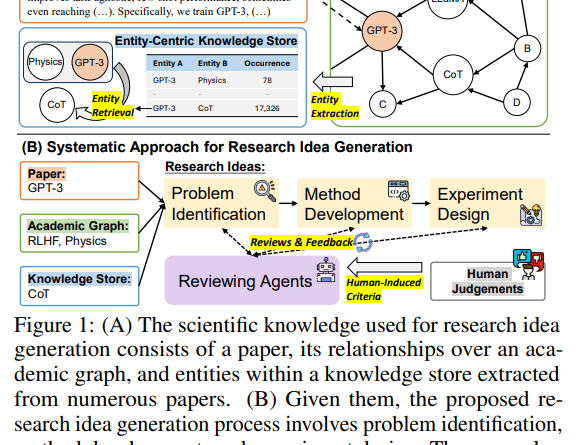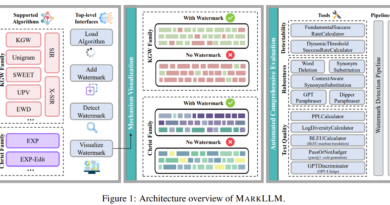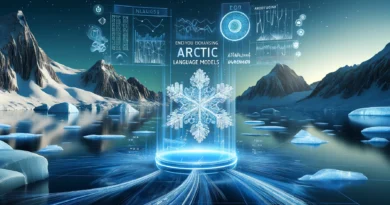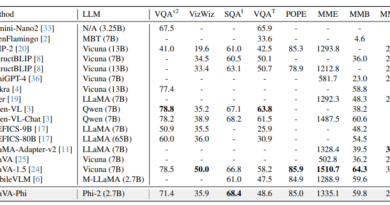Transforming Scientific Research with AI-Powered Idea Generation: The Rise of ResearchAgent
Scientific research stands as one of humanity’s most potent tools for innovation and progress. Yet, it’s also a realm fraught with complexity and slow progression, often hindered by the limitations of human capacity and the sheer volume of available information. In recent years, however, a beacon of hope has emerged in the form of AI-powered tools, promising to revolutionize the landscape of scientific inquiry. At the forefront of this revolution lies ResearchAgent, a groundbreaking platform designed to harness the power of artificial intelligence for idea generation and iterative refinement in research endeavors.
Understanding the Need for Innovation
Before delving into the specifics of ResearchAgent, it’s essential to grasp the challenges inherent in traditional scientific research. Historically, the process of generating research ideas has relied heavily on human expertise, often constrained by disciplinary boundaries and cognitive biases. Furthermore, the sheer volume of scholarly literature can overwhelm even the most seasoned researchers, making it difficult to identify novel avenues for exploration. In this context, the need for innovation in idea generation becomes apparent, driving the quest for AI-powered solutions.
Explore 3600+ latest AI tools at AI Toolhouse 🚀
Enter ResearchAgent: A Paradigm Shift in Idea Generation
ResearchAgent represents a paradigm shift in the way research ideas are conceived and refined. Developed by a collaborative team from KAIST, Microsoft Research, and DeepAuto.ai, this platform harnesses the capabilities of large language models (LLMs) to automate the process of idea generation. Unlike traditional approaches that rely on manual literature review and serendipitous discovery, ResearchAgent leverages the vast repository of scientific knowledge to formulate hypotheses and research questions systematically.
The Inner Workings of ResearchAgent
At its core, ResearchAgent operates on a three-step process mirroring human research practices: problem identification, method development, and experiment design. Leveraging LLMs, the platform analyzes core academic papers and explores related literature through references and citations. However, what sets ResearchAgent apart is its ability to transcend disciplinary boundaries, drawing insights from diverse fields to foster interdisciplinary collaboration and innovation.

Iterative Refinement: The Key to Quality
Central to ResearchAgent’s success is its emphasis on iterative refinement, a process inspired by human collaborative practices. By soliciting feedback from multiple reviewing agents and aligning evaluations with human preferences, ResearchAgent ensures the continual improvement of research ideas. This iterative approach not only enhances the quality and relevance of generated ideas but also fosters creativity and innovation.
The Impact of ResearchAgent: A Comparative Analysis
To gauge the efficacy of ResearchAgent, it’s essential to compare its performance against existing methods. Traditional approaches to idea generation often rely on manual literature review and intuition, making them susceptible to biases and oversights. In contrast, ResearchAgent leverages the collective intelligence of LLMs to analyze vast amounts of data and identify patterns that may elude human researchers. Moreover, its iterative refinement process ensures that generated ideas are continually vetted and improved, leading to higher-quality outcomes.
Conclusion: Empowering Scientific Inquiry
In conclusion, ResearchAgent represents a significant leap forward in the realm of scientific research, empowering researchers with AI-driven tools for idea generation and iterative refinement. By harnessing the power of LLMs and embracing interdisciplinary collaboration, ResearchAgent promises to accelerate the pace of discovery and foster innovation across diverse fields. As we look to the future, the role of AI in scientific inquiry will undoubtedly continue to expand, ushering in a new era of discovery and exploration.
Check out the Paper. All credit for this research goes to the researchers of this project. Also, don’t forget to follow us on LinkedIn. Do join our active AI community on Discord.
If you like our work, you will love our Newsletter 📰






